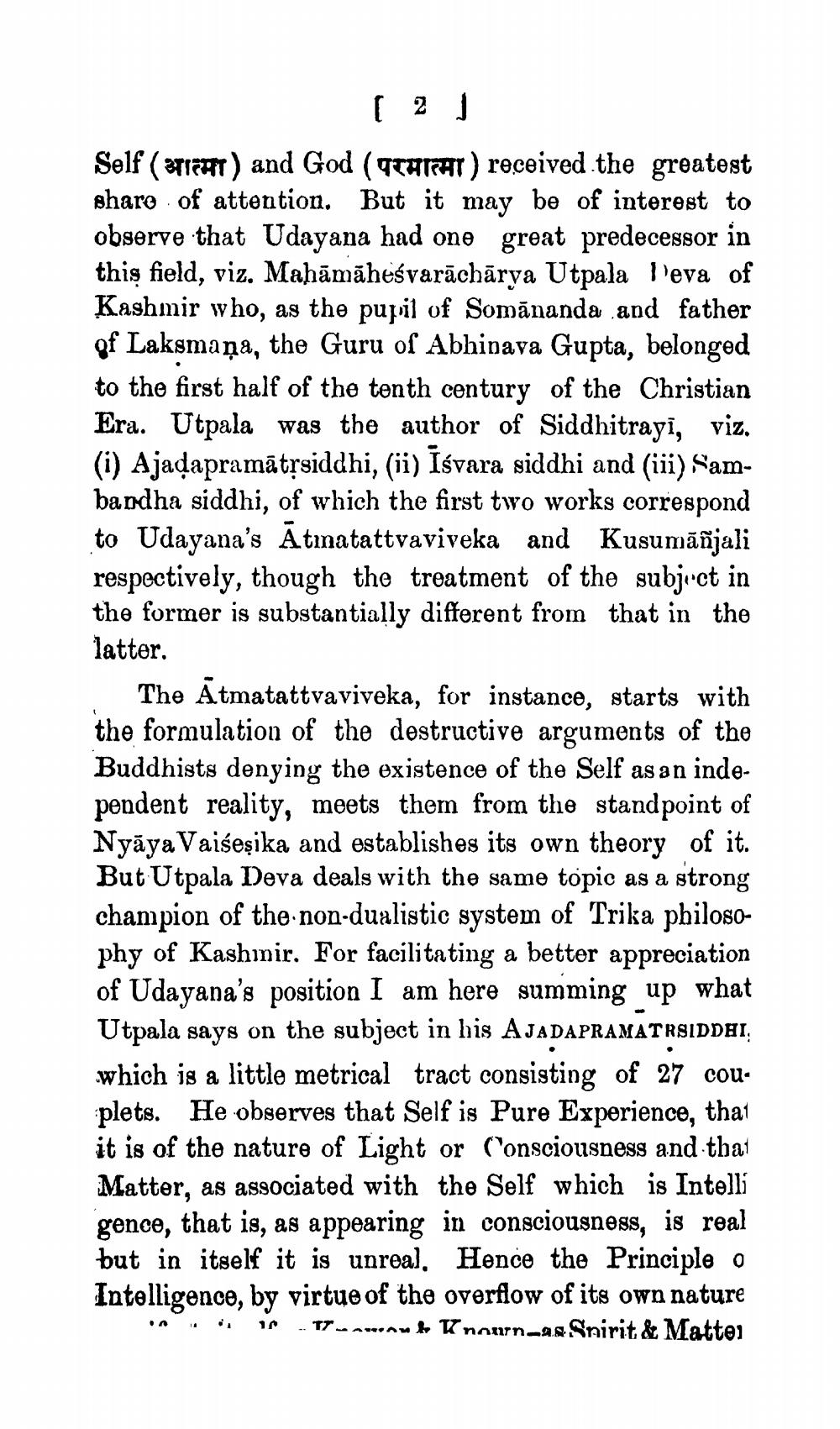Book Title: Atmatattva Viveka Author(s): Udayanacharya Publisher: Udayanacharya View full book textPage 4
________________ [ 2 ] Self (आत्मा) and God (परमात्मा ) received the greatest share of attention. But it may be of interest to observe that Udayana had one great predecessor in this field, viz. Mahāmāheśvarāchārya Utpala Deva of Kashmir who, as the pupil of Somānanda and father of Laksmana, the Guru of Abhinava Gupta, belonged to the first half of the tenth century of the Christian Era. Utpala was the author of Siddhitrayī, viz. (i) Ajaḍapramätṛsiddhi, (ii) Isvara siddhi and (iii) Sambandha siddhi, of which the first two works correspond to Udayana's Atmatattvaviveka and Kusumāñjali respectively, though the treatment of the subject in the former is substantially different from that in the latter. The Atmatattvaviveka, for instance, starts with the formulation of the destructive arguments of the Buddhists denying the existence of the Self as an independent reality, meets them from the standpoint of Nyaya Vaiseṣika and establishes its own theory of it. But Utpala Deva deals with the same topic as a strong champion of the non-dualistic system of Trika philosophy of Kashmir. For facilitating a better appreciation of Udayana's position I am here summing up what Utpala says on the subject in his AJADAPRAMATRSIDDHI, which is a little metrical tract consisting of 27 couplets. He observes that Self is Pure Experience, that it is of the nature of Light or Consciousness and that Matter, as associated with the Self which is Intelli gence, that is, as appearing in consciousness, is real but in itself it is unreal. Hence the Principle o Intelligence, by virtue of the overflow of its own nature Known as Spirit & Matter 10 -Page Navigation
1 2 3 4 5 6 7 8 9 10 11 12 13 14 15 16 17 18 19 20 21 22 23 24 25 26 27 28 29 30 31 32 33 34 35 36 37 38 39 40 41 42 ... 217
